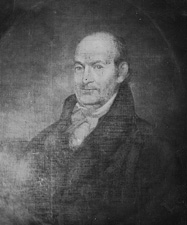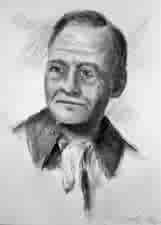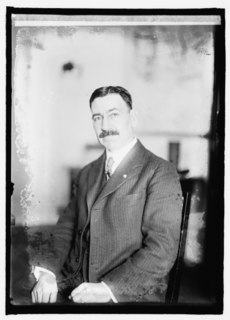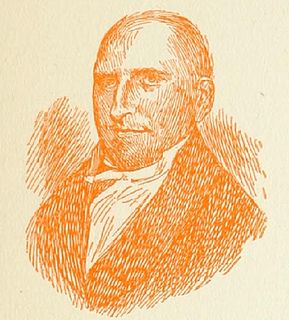Thomas Ward (ca. 1759 - March 4, 1842) represented New Jersey's 1st congressional district in the United States House of Representatives from 1813 to 1817.
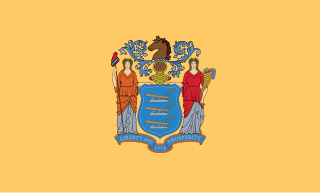
New Jersey is a state in the Mid-Atlantic region of the Northeastern United States. It is a peninsula, bordered on the north and east by the state of New York, particularly along the extent of the length of New York City on its western edge; on the east, southeast, and south by the Atlantic Ocean; on the west by the Delaware River and Pennsylvania; and on the southwest by the Delaware Bay and Delaware. New Jersey is the fourth-smallest state by area but the 11th-most populous, with 9 million residents as of 2017, and the most densely populated of the 50 U.S. states; its biggest city is Newark. New Jersey lies completely within the combined statistical areas of New York City and Philadelphia and was the second-wealthiest U.S. state by median household income as of 2017.
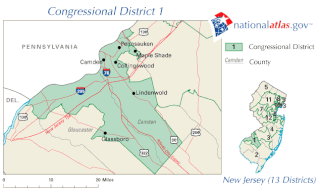
New Jersey's 1st congressional district is a congressional district in the U.S. state of New Jersey.

The United States House of Representatives is the lower chamber of the United States Congress, the Senate being the upper chamber. Together they comprise the legislature of the United States.
Born in Newark, New Jersey, Ward completed preparatory studies. He studied law. He was admitted to the bar and commenced practice in Newark, New Jersey. He served as captain and major during the Whiskey Rebellion in 1794. He served as Sheriff of Essex County, New Jersey, in 1797.

Newark is the most populous city in the U.S. state of New Jersey and the seat of Essex County. As one of the nation's major air, shipping, and rail hubs, the city had a population of 285,154 in 2017, making it the nation's 70th-most populous municipality, after being ranked 63rd in the nation in 2000.

The Whiskey Rebellion was a tax protest in the United States beginning in 1791 and ending in 1794 during the presidency of George Washington, ultimately under the command of American Revolutionary war veteran Major James McFarlane. The so-called "whiskey tax" was the first tax imposed on a domestic product by the newly formed federal government. It became law in 1791, and was intended to generate revenue for the war debt incurred during the Revolutionary War. The tax applied to all distilled spirits, but American whiskey was by far the country's most popular distilled beverage in the 18th century, so the excise became widely known as a "whiskey tax". Farmers of the western frontier were accustomed to distilling their surplus rye, barley, wheat, corn, or fermented grain mixtures into whiskey. These farmers resisted the tax. In these regions, whiskey often served as a medium of exchange. Many of the resisters were war veterans who believed that they were fighting for the principles of the American Revolution, in particular against taxation without local representation, while the federal government maintained that the taxes were the legal expression of Congressional taxation powers.
A sheriff is a government official, with varying duties, existing in some countries with historical ties to England, where the office originated. There is an analogous although independently developed office in Iceland that is commonly translated to English as sheriff, and this is discussed below.
Ward was elected one of the judges of the Essex County Court in 1804 and reelected in 1809. He served as member of the New Jersey Legislative Council in 1808 and 1809 serving as Vice-President of Council in the latter year.
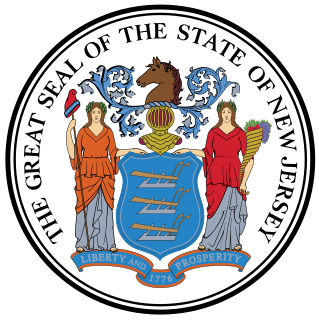
The New Jersey Legislative Council was the upper house of the New Jersey Legislature under the New Jersey Constitution of 1776 until it was replaced by the New Jersey Senate under the Constitution of 1844.
The Vice-President of Council of the New Jersey Legislature would succeed the Governor if a vacancy occurred in that office.
Ward was elected as a Democratic-Republican to the Thirteenth and Fourteenth Congresses (March 4, 1813 – March 3, 1817). He was senior officer of the New Jersey Cavalry at the time of his death in Newark, New Jersey, March 4, 1842. He was interred in the First Presbyterian Church Cemetery in Newark. [1]


